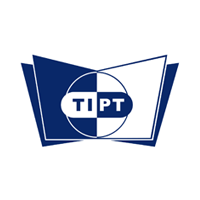
The development and production of new medicines to help those in need makes pharmaceutical careers very rewarding. New drugs and products are constantly being discovered and lead to breakthroughs in treatment and prevention that make the world a better place.
However, while the industry remains a necessity in the modern world, consumer trust has become an increasing concern in recent years. Although many people view the industry in a positive light, concerns about pricing, accessibility, safety, and effectiveness can sometimes threaten to overshadow the public good pharmaceutical companies do.
The most recent survey carried out by global advocacy organization PatientView found that 43% of patient groups thought the pharmaceutical industry enjoyed an ‘excellent’ or ‘good’ corporate reputation in 2017. That is an increase on the previous year’s figure of 38%, but there is still room for improvement. Let’s take a closer look at how this can be achieved.
Transparency Can be the Key to Overcoming Skepticism
Today’s consumers are more inclined to be skeptical about claims made about the benefit of products, so it’s essential for pharmaceutical companies to prove that what they bring to market is safe and effective.
Because regulatory affairs diploma graduates prepare the documentation needed for product approval, they play a vital role in ensuring that the process is as transparent as possible, which can be crucial in building trust with customers.

Clinical trials are a common method used to test the efficacy of medication, and transparency is improved by making these results available to the public, allowing consumers to make a fully informed decision.
Getting Advertising Right with a Regulatory Affairs Diploma
Most consumers don’t have the time to trawl through thousands of pages of statistics to determine medication quality. Marketing therefore becomes an important component within a pharmaceutical company, but regulations can be quite strict, particularly when it comes to medication.
There may also be different challenges regarding print, online or broadcast media advertisements. For example, the merits of a new painkiller could have to be condensed into a 30 second TV advertisement, but viewers deserve the most important information about its strengths and weaknesses.

Regulatory affairs training helps professionals to develop the expertise to ensure advertising and packaging copy complies with regulations, and relays the most essential information to the customer in clear, simple language. If no shortcuts are taken, the consumer will welcome the transparency you provide.
Regulatory Affairs Departments Should Work in Harmony with Regulators
Health Canada and the Food & Drug Administration (FDA) in the US represent the interests of the public and make sure that the pharmaceutical products entering the market are safe. Regulatory affairs professionals are in regular contact with these bodies to find out about rule changes, and to assess whether new products meet national requirements.
With that in mind, maintaining an open dialogue with Health Canada, the FDA, or any other national regulator is beneficial to pharmaceutical companies. It could highlight a possible pitfall early in the drug development process, thus preventing a subsequent waste of money. Customers may not see the interaction between the regulator and regulatory affairs staff, but it does ensure a safe and effective product for them at the end of the process, and consumer confidence will only increase as a consequence.
The right training can open up a range of rewarding pharmaceutical careers.
Find out why studying at TIPT gives you the best possible start.
